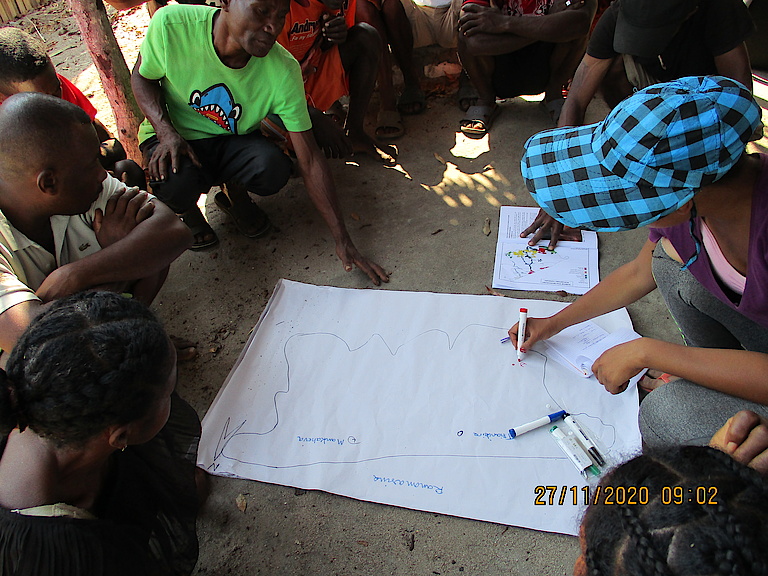Fields of intervention
Supporting the Ministry for the Environment and Sustainable Development (MEDD) in implementing Madagascar’s ABS framework through ensuring clear information and facilitating administrative processes for all involved parties
- Develop and produce sector-specific ABS-related manuals based on a gap and needs analysis
- Improve the capacities of relevant Malagasy actors to negotiate implementable and enforceable ABS contracts through training courses on contract requirements and valorization approaches of relevant sectors
- Support the Ministry in developing an online based system for permit application and monitoring
Increasing awareness on and co-developing of measures that ensure biodiversity conservation and sustainable use as part of ABS agreements
- Capacity-building on benefit-sharing measures which foster biodiversity conservation and sustainable use
- Develop a catalogue with defined and localized measures, which also include aspects on gender sensitivity and foster income-generation
- Knowledge generation on financing options linked to benefit sharing, including experience exchanges with BIA partner countries
Support European-Malagasy business partnerships in exploiting market potentials of selected biodiversity-based value chains
- Provide technical assistance to Malagasy SMEs and cooperatives in the implementation of sustainable supply chains based on biological resources, by applying the UNCTAD BioTrade principles and criteria. This includes gap analyses and joint interventions alongside the value chain in partnership with European industry
- Provide guidance to European and Malagasy SMEs on the national requirements for ABS compliance and permitting procedures
- Facilitate partnerships on know-how and technology transfer to increase local value creation and to create new job opportunities
Upon request of the GIZ PAGE project, the ABS Initiative mostly concentrates on technical support for the development of ABS legal texts, through the NGO Natural Justice on the development of Biocultural Community Protocols (BCP) and support to specific ABS relevant value chains that are not covered by the BioInnovation Africa project.
Major achievements
- Stocktaking of ABS relevant laws, regulations, policies, permits and manuals; and conservation policies
- Established 4 commercial partnerships between South African actors and European industry, focusing on developing biological resources and genetic resources for the European market in cosmetic, pharmaceutical and flavor & fragrance sector
- Joint-establishment of a roadmap for the ABS IT tool creation
- Established an Advisory Committee on Centella asiatica to foster dialogue and information sharing between national and international stakeholders
- A BCP was developed for seven communities involved in the Saro (Cinnamosma fragrans) value chain, with support of Natural Justice.
- 5 biotrade agreements between communities and users have been established based on the commercialization of Saro oil. All of them have respected the BCP of the communities. A provision on ABS have been integrated in these agreements.
- In the context of a project on mutually supportive implementation of the Nagoya Protocol and the International Treaty on Plant Genetic Resources for Food and Agriculture (ITPGRFA), funded by the Darwin Initiative and run by Bioversity International, and with additional financial and technical support of the ABS Initiative through Natural Justice, two BCPs were developed in two Malagasy communities (Analavory and Ampangalatsary) that include specific aspects regarding plant genetic resources for food and agriculture and farmers rights.
- An interim ABS regulatory framework in form of an ABS decree (n°2017-066 of 31/01/2017) regulating access and benefit-sharing arising from the use of genetic resources, was validated and adopted.
- In 2019, a so called “arrêté interministeriel”, - fixing terms and conditions for the application of the ABS decree was finalized and is currently in the process of promulgation.
